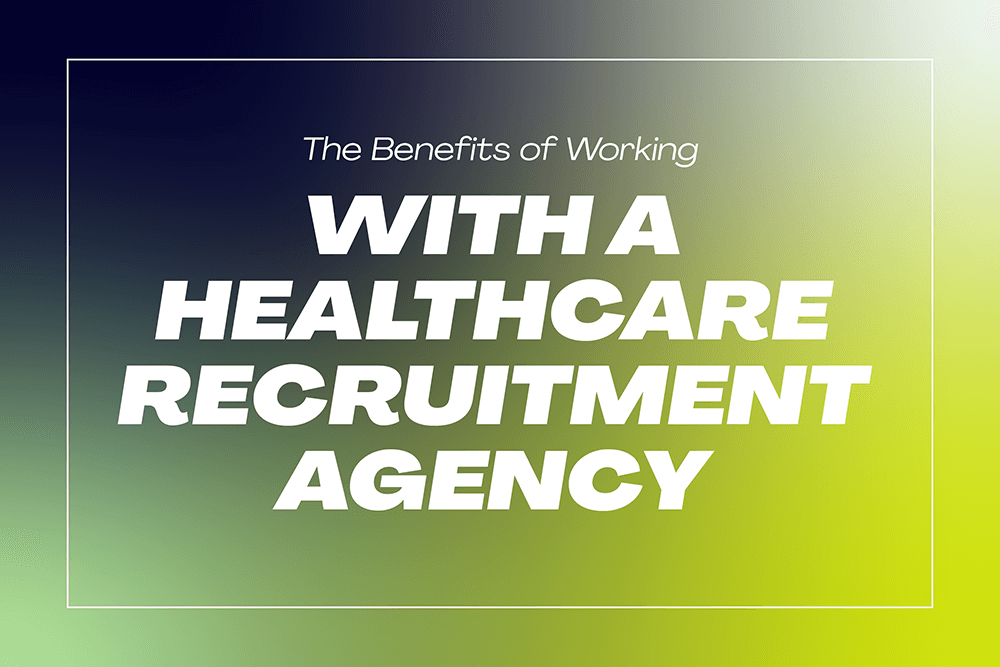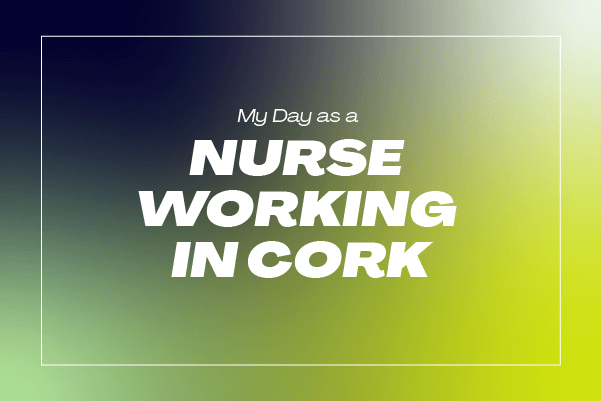Studying abroad is a fantastic opportunity if you can get it. It shows employers that you're flexible and comfortable working with different cultures, and it gives you experience that makes you stand out from other job applicants.
However, if you're coming home to Ireland afterward or choosing to live in Ireland for the first time, there are steps you, as a nurse, need to take to bring your degree with you and practice legally.
Is this process quick and easy? Not always, but it's doable. We’ll walk you through all the steps so that you're fully clued in before applying and don't have any surprises.
What is the NMBI?
NMBI stands for the Nursing and Midwifery Board of Ireland. It is the health regulator to which all nurses and midwives working in Ireland must be registered, similar to the NMC in the UK.
How do I register with NMBI?
You can register through the NMBI website, but there are a few things you need to be aware of before applying.
Firstly, you can only apply for registration in a division where you have relevant training and education. For example, general nurses can only apply to the Register as general nurses, even if they have experience elsewhere. Therefore, general nurses with considerable experience as children's nurses, for example, cannot register until they have completed the appropriate training and education in this area – experience alone is not enough.
You also need to identify your Application Group. They are as follows:
Group 1
This directive applies to professionals who are trained as general nurses or midwives in the European Union (EU) or European Economic Area (EEA) and can meet the automatic recognition or acquired right provisions of the Directive.
Group 2
- Professionals who have trained as general nurses or midwives in the EU or EEA and are seeking recognition under the "Directive's general system" provision.
- Those trained in the EU or EEA in a division other than general nursing or midwifery.
Group 3
This is for everyone who has trained outside the EU or EEA.
What is the process for overseas applicants?
The NMBI has simplified the process into five steps:
In your decision letter, you will receive one of four outcomes:
- Eligible for registration
- Further information required
- You are required to successfully complete a period of adaptation and assessment/Aptitude Test before you can be registered
- Refused registration
(See the complete guide for overseas applicants here.)
Remember: Don't move to Ireland (unless you are an Irish native), leave your current employment or apply for positions until you receive a decision letter from the NMBI about your registration application.
What is the difference between the Overseas Aptitude Test and the NMBI Adaptation and Assessment Test?
The Overseas Aptitude Test is coordinated and managed by the Faculty of Nursing and Midwifery in the Royal College of Surgeons Ireland (RCSI). This test doesn't require an employer to sponsor you (although you can choose to obtain employer sponsorship), whereas the Adaptation and Assessment Test does.
The Adaptation and Assessment Test states that you must find an employer to sponsor you to work as a nurse in Ireland. They will apply for your test placement on your behalf, pay for it, and often help you find accommodation. However, as with an overseas aptitude test, you will be responsible for obtaining your own work visa.
The Overseas Aptitude Test only takes 10-14 days to complete, but the Adaptation and Assessment Test process can take 6- 24 months.
Adaptation and Assessment Test
If your decision letter says you're required to take the Adaptation and Assessment Test, it will include details about how to join the NMBI's Candidate Register and the test itself. It will also include a list of healthcare facilities that the NMBI has approved.
You must follow several steps to complete this assessment, and as previously mentioned, it can take 6-24 months when places are limited.
Here's a breakdown of how the assessment works.
Find employment
First things first, you need to find an employer. They must be someone willing to employ you as a nurse in Ireland and apply for your placement on the Adaptation and Assessment Test.
This stage can take 6-24 months, as finding a placement doesn't always happen immediately.
If you would like assistance finding a placement, contact the brilliant team at Your World Ireland. They have connections with some fantastic healthcare facilities.
Visa and travel
Even though your employer applies for your place on the test, you must apply for a work visa and arrange travel. (If you're unsure whether you need a visa, see our FAQs at the bottom.)
Adaptation and Assessment Process
This is a supervised assessment where you will work on placement in an Irish healthcare facility for six weeks. If you complete this successfully, you will receive an official nurse pin and can complete registration with the NMBI.
Once you have your pin and have registered, you are ready to start work as a nurse in Ireland!
English Language Competence and Overseas Applicants
As of the 2nd of April 2018, it became compulsory for applicants registering with the NMBI who qualified outside of Ireland to provide substantial evidence to show that their English skills are strong enough to communicate within their professional environment.
This includes communicating through speech, reading, listening and writing; evidence must be provided to demonstrate competence in these areas.
Check below to see which route you'll most likely need to take.
The following places are recognised as majority English-speaking countries:
- Australia
- Canada
- New Zealand
- The United States of America
- United Kingdom
Pathway 1
If you're taking Pathway 1, you'll need to provide a letter on headed paper or an email from your training institution covering the following:
- The location of the training institution
- The name of the training programme attended
- The dates of attendance
- Confirmation that the course was taught and assessed in English
Pathway 2
For Pathway 2, you'll also need a letter on headed paper or an email from your employer/s or Nursing Authority covering the following:
- Location of employment
- The dates of employment
- A statement that you were practising as a nurse or midwife primarily through English.
Pathway 3
Applicants taking Pathway 3 must take an English Language test: the International English Language Test System (IELTS) or the Occupational English Test (OET).
You will then need to provide the following evidence:
NMBI accepts the International English Language Testing System (IELTS) Academic Test, the IELTS Academic Test for UKVI, and the Occupational English Language Test (OET) as evidence of English language competency.
Be aware that you must reach a minimum level to be accepted by the NMBI. See the tables below:
In addition to the grades you need to achieve, your test results must be under two years old. You will need to retake the exam if yours are older than this.
The NMBI also states:
- You must provide an IELTS Academic Test Report Form (TRF) number or an OET Candidate Number as part of Step 1 of the application process
- NMBI will independently verify your scores
- They only accept one test result - combined results aren't allowed
- Do not apply for registration until you meet the minimum scores under the IELTS Academic Test/OET
- Remember that if you make an application and don't meet the English language competency requirements, the assessment fee is non-refundable
See the NMBI's English Language Competence and Overseas Applicants page here.
FAQs
Cost
Prices for an Overseas Application Request Fee (first-time applicant) are €350, then the overseas registration fee (if deemed eligible to join the Register) is €145.
For full details on the current fee schedule for the Nursing and Midwifery Board of Ireland, see here.
Can I work while my application goes through?
If you take an adaptation and assessment test, you can work in Ireland only as a pre-registration nurse. This position pays more than an HCA but not quite as much as a registered nurse. However, as mentioned before, when taking this route, the sponsor will often help you to find accommodation. At times, this can mean living with a member of staff and for others, it can mean living somewhere at a subsidised rate. In addition to this, you will often get money to sign on with them.
Do I need a visa?
If you have an EU passport, you can work in Ireland without applying for a visa. However, you can choose to apply for a European Professional Card, designed to make it easier for your qualifications to be recognised in other EU countries.
To double-check if you need a visa, visit the Irish Naturalisation and Immigration Service website. There, you can select your country and find full details of the steps you need to take.
Contact the Your World Ireland Team if you want to know more about nursing in Ireland!
You may also like…
Ten reasons to register with Your World Ireland
Your Irish Adventure Starts Here
Here's Why the Travel Mags Love Our Overseas Opportunities...











